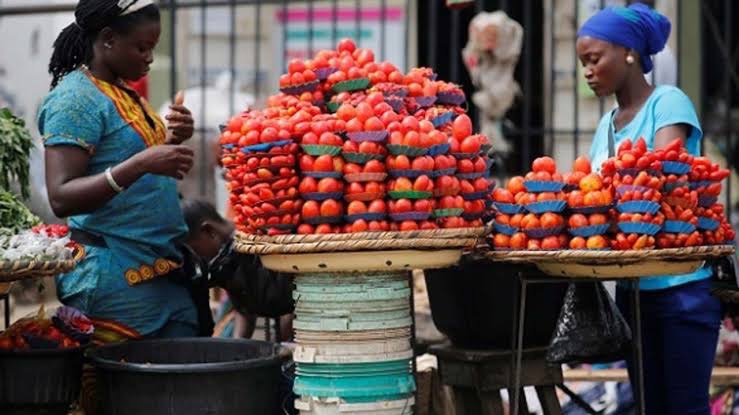Hope of high prices abating rose yesterday with a revelation by the National Bureau of Statistics (NBS) that the nation’s inflation rate decelerated for the third consecutive month in May 2024.
A statement from the Central Bank of Nigeria (CBN) on Saturday attributed the development to the recent monetary policy tightening measures that are beginning to yield results.
According to data released by the NBS, the headline inflation rate for May dropped to 2.14 per cent, down from 2.29 per cent in April and 3.02 per cent in March.
The foregoing marks a significant decline from the peak rate of 3.12 per cent observed in February 2024.
Food inflation, a critical component affecting the cost of living, also showed a consistent decline for the third month in a row.
The rate dropped to 2.28 per cent in May from 2.50 per cent in April, and a high of 3.79 per cent in February, according to NBS data.
The deceleration in food inflation indicates a slowdown in price increases for essential goods, providing some relief to Nigerian households.
Expressing optimism regarding the inflation rate, CBN Deputy Governor, Economic Policy Directorate, Muhammad Sani Abdullahi, said, “Slowly but surely, the inflation tide is turning.”

Abdullahi emphasised the importance of the monthly inflation figures in reflecting the impact of the CBN’s policy measures since the central bank began raising interest rates in February this year.
“While the numbers are not yet uniform for all measures, such as year-on-year across the entire country, we will continue to work diligently with coordinated policy measures to ensure that the worst of the inflationary cycle is behind us in the nearest future,” he said.
The CBN’s Monetary Policy Committee (MPC) has been steadfast in its belief that a combination of tighter monetary policy and appropriate coordinated fiscal measures from the Federal Government will effectively address the sharp rise in the cost of living experienced since the aftermath of the COVID-19 pandemic.
Despite the continuous rise in year-on-year inflation, the monthly figures provide a clearer picture of the recent policy impacts.
The CBN noted that in May, year-on-year inflation showed a deceleration in 13 states, including Abuja, Akwa Ibom, Borno, Cross River, Delta, Katsina, Ondo, Oyo, and Rivers.
The nationwide decline in month-on-month inflation is reflected in the slowing pace of price increases for some staples.
CBN Governor, Olayemi Cardoso, has prioritised combating inflation as a critical strategy for achieving sustainable economic growth and improving living standards for Nigerians.
He noted the bank’s broader mission to stabilise the economy and foster an environment conducive to long-term development.
He had told some leaders of the organised private sector (OPS) in a meeting held at the bank’s Lagos office on Wednesday that there were positive developments in the fight against inflation.
The meeting designed to discuss the state of the economy, monetary policy direction and fostering of collaboration also focused on exploring how broad-based monetary policy communication and guidance can positively influence the global investment community’s perception of Nigeria and on determining the right bundle of monetary policies and interventions to increase the productive sector’s growth.
The apex bank governor expressed expectations for continued moderation in the coming quarters.
He said the recent hike in interest rates were designed to achieve price stability and support economic growth.
As the CBN continues to implement and monitor its monetary policies, the focus remains on achieving a stable economic environment. The recent trends in inflation provide a glimmer of hope that the measures are effective, and the central bank is poised to build on this momentum in its ongoing efforts to stabilize prices and support economic growth.
Olaitan Ibrahim